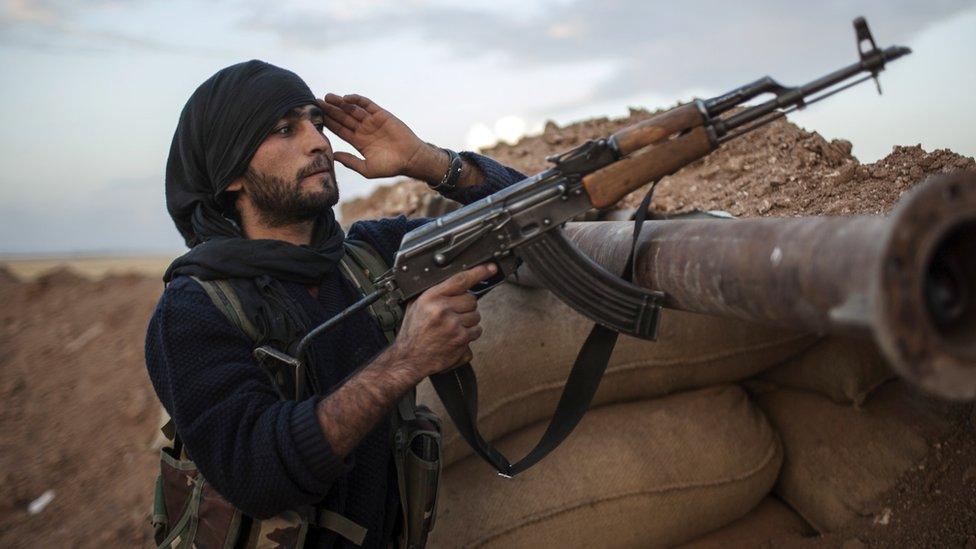Turkey election: Young voters want peace and influence
- Published
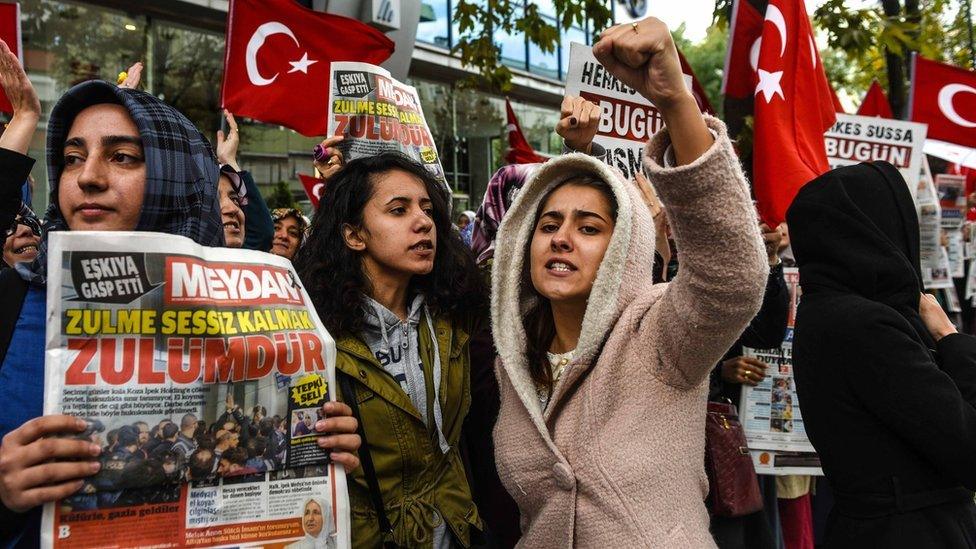
Young people have played an active part in demonstrations - this one in Istanbul was in defence of media freedom
Young voters in Turkey - a large but under-represented portion of the population - hope that the 1 November general election will bring peace, after much political turmoil.
Violence has spiralled since inconclusive elections in June and has overshadowed other chronic problems faced by young people.
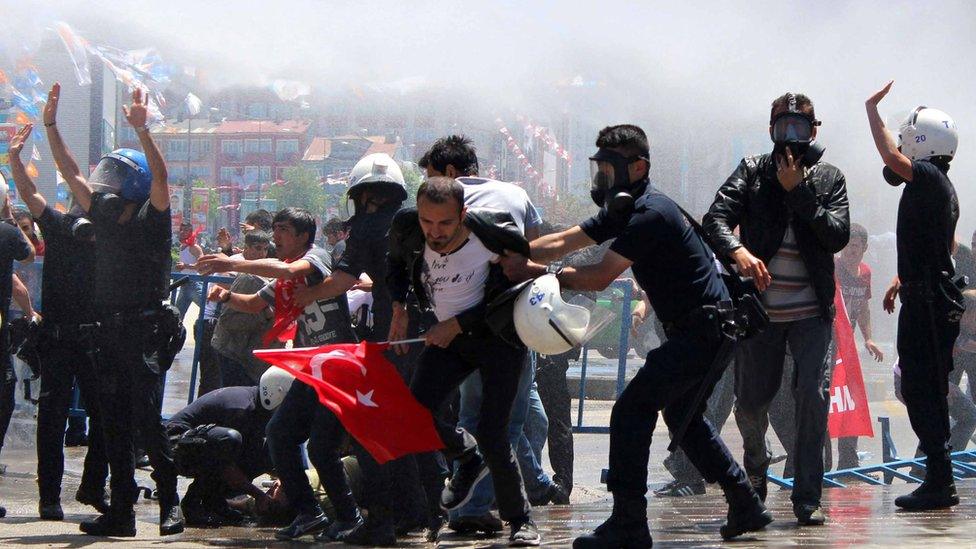
June's elections were marred by violence between supporters of rival parties
''In previous elections we used to run campaigns or promote problems of the youth, but this time... young people just want peace,'' 27-year-old activist Anil Gokrenk told the BBC.
''When we look at our politically active friends in this election, they don't seem very excited. Like the rest of society, the younger generation is tired,'' said Ismail Metin.
Both young men are from the National Youth Parliament, a national lobbying group that represents a wide range of political opinion.
President Recep Tayyip Erdogan hopes the Islamist-rooted Justice and Development Party (AKP) will win back the majority it lost in the June election.
Wave of violence
Turkey suffered its deadliest attack in modern times when twin suicide bombings killed more than 100 people in the capital Ankara two weeks ago.
The attack followed an escalation of fighting between the security forces and Kurdistan Workers' Party (PKK) militants in the southeast, which left hundreds of people dead, many of them men in their 20s.
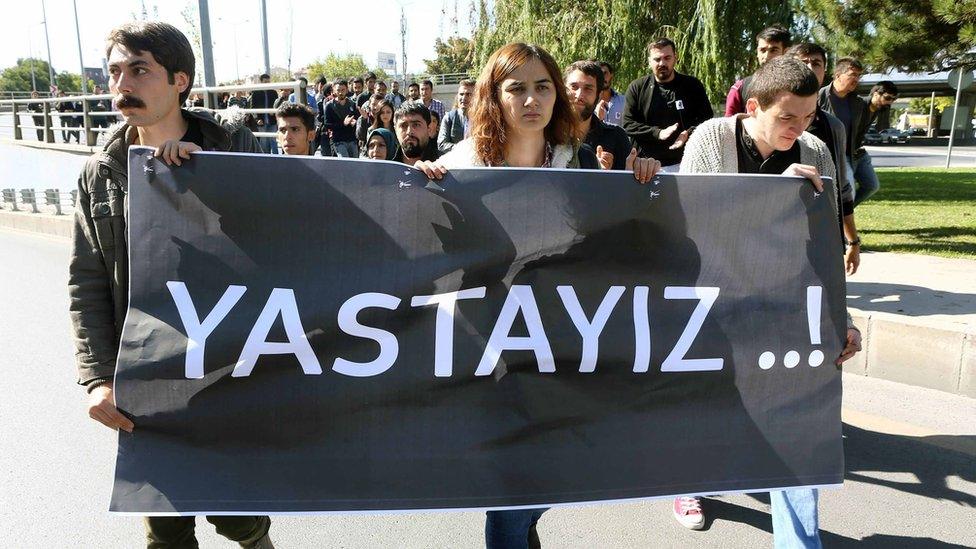
Students demonstrated after the Ankara attacks with a banner reading "We are mourning"
The surge in violence has taken its toll on young political activists as well.
''We lost our loved ones and friends. Our responsibility is to continue their struggle and make sure their names live forever,'' says a defiant Ozgen Sadet, whose 20-year-old sister Hatice was killed in another suicide bomb attack a few months ago.
Ozgen, a 23-year-old woman, is the joint leader of the Federation of Social Youth Associations. Thirty-three of its members were killed in Suruc, a border town in the south-east. The activist group was taking aid to the Kurdish town of Kobane in Syria when it was targeted by an Islamic State (IS) bomber.
Earlier this year Kobane was left in ruins after intense fighting between Syrian Kurdish forces and IS.
A recent economics graduate, Ozgen is determined to dedicate all her time to politics.
Young population
Turkey has the youngest population in Europe - 25% are below the age of 30.
However, a third of young people are not in education, employment or training, according to a recent report by the Organization for Economic Co-operation and Development (OECD).
And official statistics show that youth unemployment is rising.
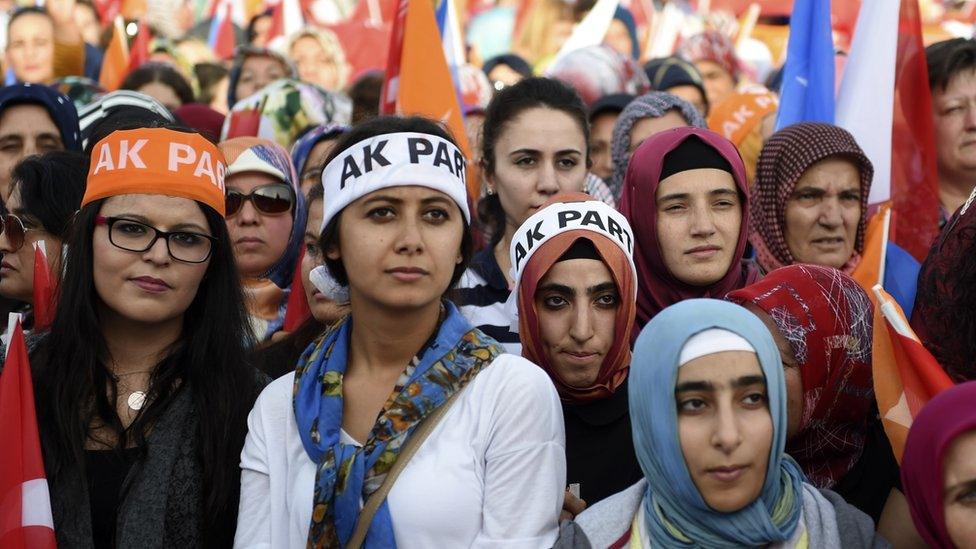
An election rally for the AK Party of Turkish Prime Minister Ahmet Davutoglu
Political parties are competing for young voters and economic promises targeting them have featured prominently in campaigns.
The Republican People's Party (CHP) has promised to introduce unemployment benefits and the pro-Kurdish Peoples' Democratic Party (HDP) is promising scholarships and free travel.
The ruling AKP says it will help young people to set up new businesses.
And the Nationalist Movement Party (MHP) has pledged to create 700,000 new jobs every year.
''The youth issue has been a new battleground for politicians. But they don't speak the same language as young people,'' said Yoruk Kurtaran from Bilgi University.
Few young MPs
The gap between politics and the younger generation is evident in parliamentary representation, with only 2% of 550 MPs under the age of 30.
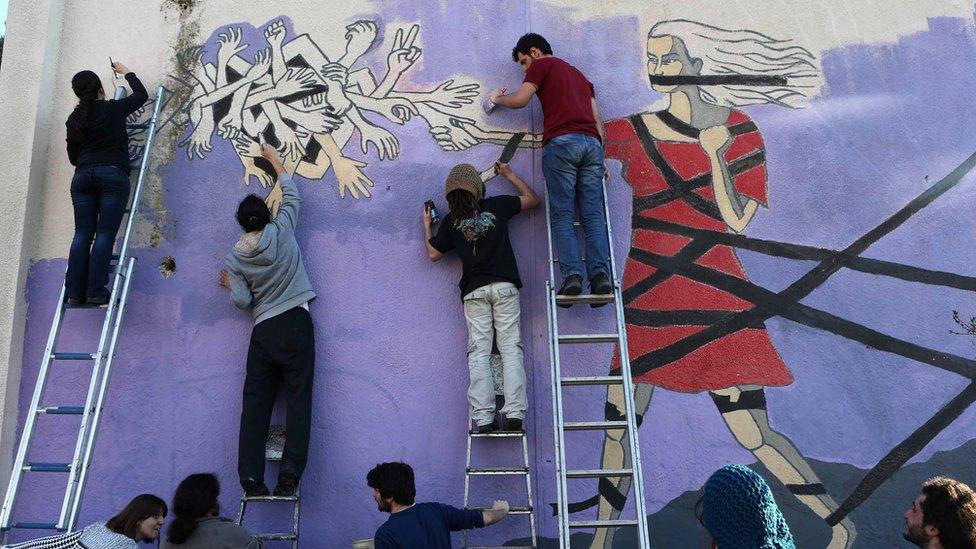
Young people have taken to graffiti as a form of political expression
But a survey conducted in 2014 suggests that only 20% of young people are interested in becoming members of a political party.
''That doesn't mean that Turkish youth is apolitical - they just aren't interested in traditional politics,'' says Basak Tugsavul from Community Volunteers Foundation, a network of young volunteers.
''The language of Turkish politics is alienating and young people are looking for alternative ways to express themselves individually, as they have already done through graffiti or street art.''
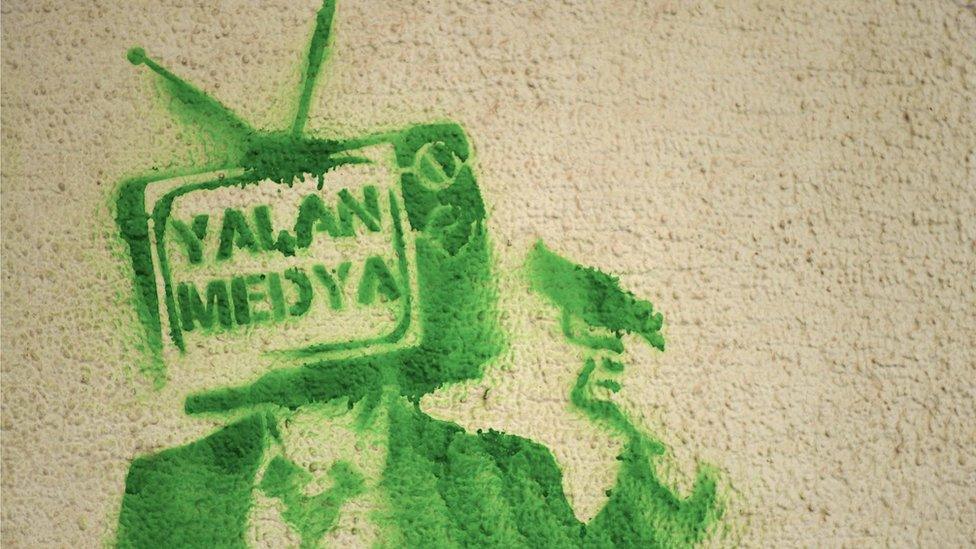
This graffiti seen on a wall at Gundogdu Square, Izmir, reads "Lying media"
Political parties have all pledged to lower the minimum age of parliamentary candidates from 25 to 18.
Activist Anil underlines why young people want a greater say in their future:
''We are the ones who are dying as a result of the terror,'' he says. ''The soldiers, the ones fighting up in the mountains, they are all young. If this is our problem, where do we get a say in this? Nowhere.''
BBC Monitoring, external reports and analyses news from TV, radio, web and print media around the world. You can follow BBC Monitoring on Twitter , externaland Facebook, external.
- Published29 October 2015
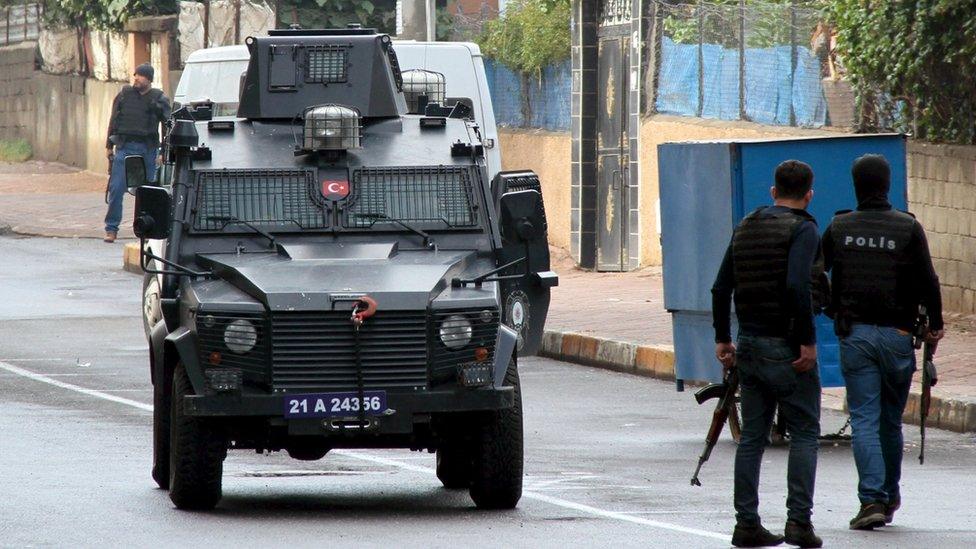
- Published29 October 2015
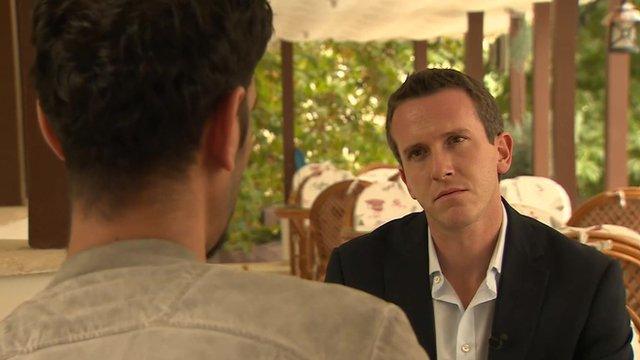
- Published27 October 2015
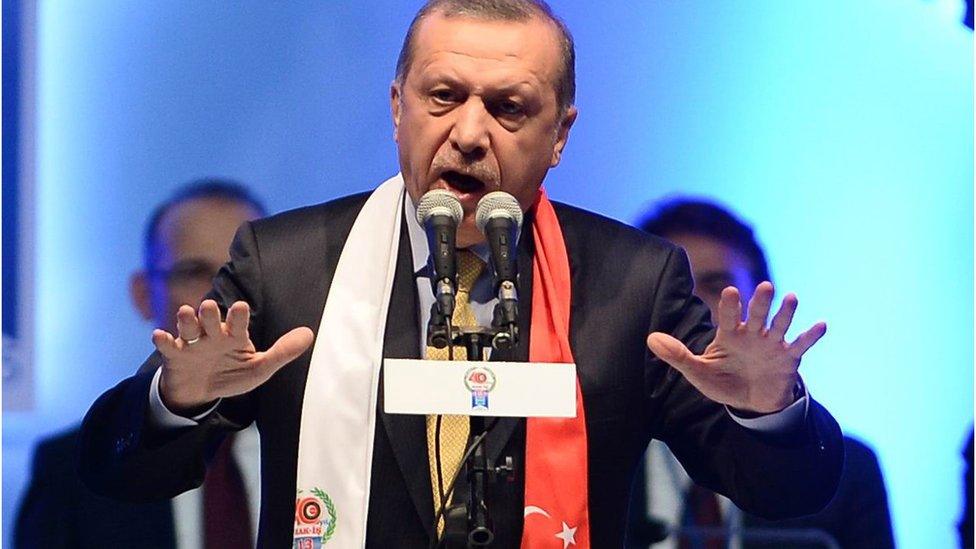
- Published28 October 2015
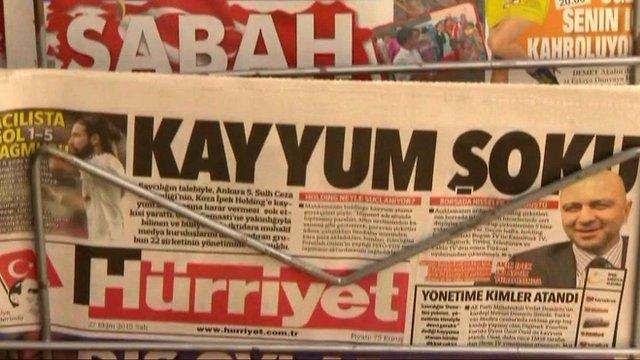
- Published27 October 2015
